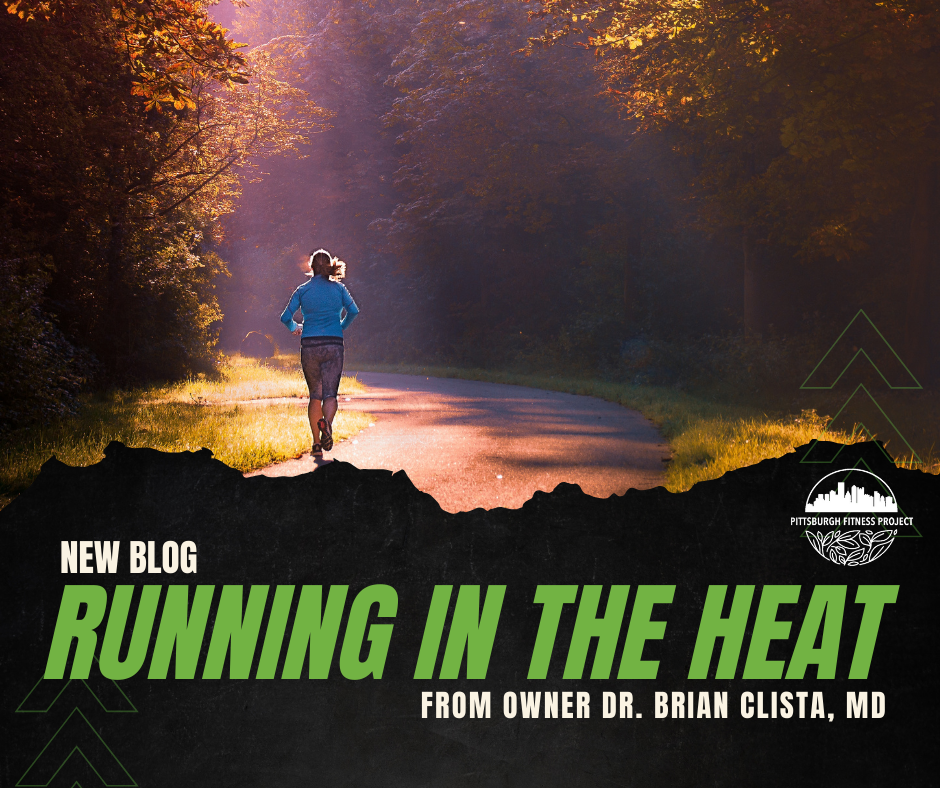RUNNING IN THE HEAT
This week is hot! What steps can you take to protect yourself when running in the heat? Try these quick tips!
Give Yourself Time to Adjust to the Heat
It takes at least a week to acclimate to hot weather. Your body will learn to sweat more to remain cool. And your heart will learn to slow down while running in the heat.
Avoid long, intense runs if you can. If your training schedule doesn't allow that, pay attention to the other tips next!
Pay Attention to the Heat Index
The heat index accounts for humidity as well as temperature. Humidity, or the moisture in the air, is that sticky feeling you can get outside. Humidity interferes with your body's ability to sweat and cool itself off. On a high heat index day, push the hydration and follow these other heat running tips.
Hydrate, Hydrate, Hydrate!
This one seems obvious. Drink at least 16 oz of a sports drink about an hour before your run in the heat. 4 - 6 oz of water every 20 minutes is preferable after that. If you are running longer than an hour, switch over to an electrolyte beverage after the first 60 minutes.
Dress for the Weather
Another “obvious” one. Wear a hat, sunglasses, and sweat-resistant sunscreen with at least an SPF of 30.
Microfiber, vented clothing is best. Choose light colors that reflect the sun.
Run When It's Cooler
Do early morning or evening runs when you can.
If you have to do a mid-day run, pick shaded areas like a park. If you're in the city, run on the side of the street with the most shade.
Run Slowly
If you're out in the heat, it's not time to go for a PR.
Run at least 20 - 30 seconds slower per mile when it's really hot.
Recognize Signs of Heat Illness
Heat illness starts as cramps, then exhaustion, and finally heat stroke.
If you start to feel cramps in your legs or stomach, seek shade immediately and begin drinking a sports drink.
If you start cramping, it's best to cut short your run. If you're far from home, call for a ride or get an Uber.
If you progress to nausea, fatigue, profuse sweating, and fever, it's time to seek medical attention for heat exhaustion. You'll need ice packs, electrolyte fluids, and rest.
Hopefully, you never progress to heat stroke where you can experience vomiting, confusion, a rapid pulse, and high temperatures. You may even stop sweating at this point. Heat stroke is a medical emergency that requires cold intravenous fluids and icing.
Finally, Find a Buddy
Run with someone when out in the heat so you can watch for any signs of illness. And be careful this week!

